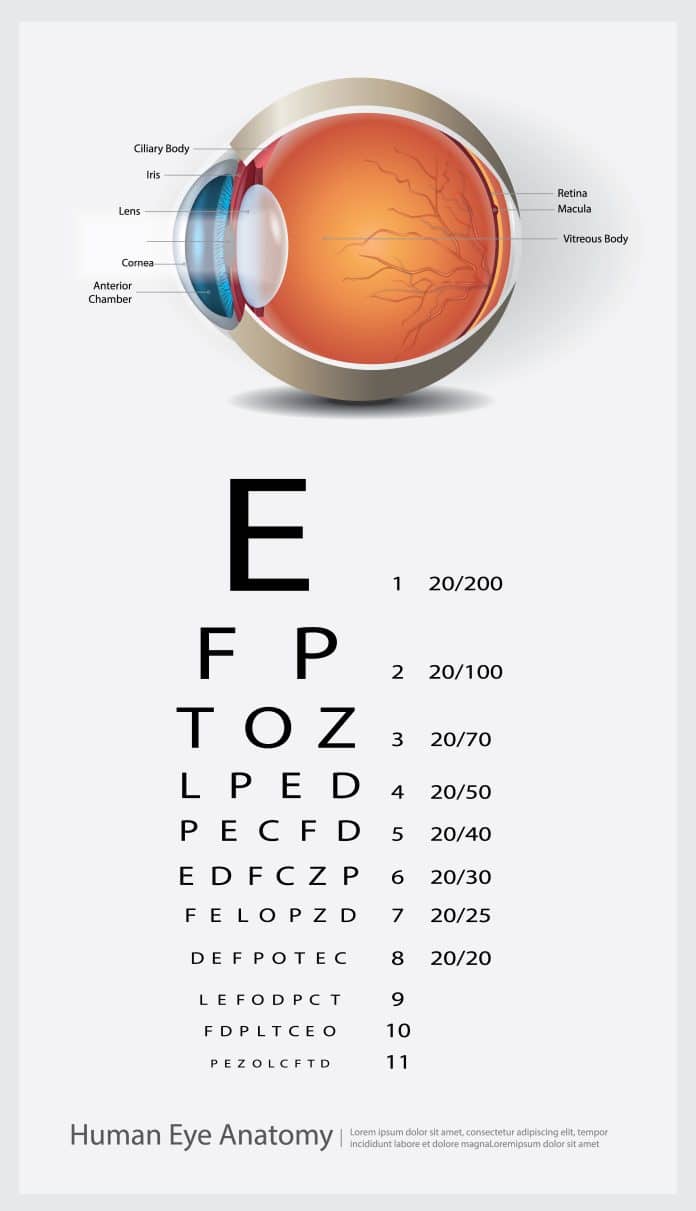Who hasn’t heard their mother say: “Eat up your carrots! They’ll help you see in the dark.”
Well, it’s true in a sense because carrots are rich in beta-carotene, which your body uses to make a form of Vitamin A that helps your eyes adjust in the dark. But “adjust” is the key word — carrots can indeed improve our vision at night, but they won’t let us see in complete darkness.
Vitamin A is important for good vision as it helps the eye to convert light into a signal that is sent to the brain, helping to adjust our vision in the dark. If someone suffers from a vitamin A deficiency, this may cause night blindness.
The human body cannot make vitamin A on its own, so we rely on the food we consume to help jump-start the creation of vitamin A. The pigment beta carotene is a major driver of vitamin A production.
Beta carotene is found in many vegetables. It’s the nutrient that gives yellow, orange, and red fruits and vegetables their color. That includes carrots, cantaloupes, apricots, sweet potatoes, mangoes, pumpkins, and papayas. Beta carotene is also found in green, leafy vegetables like spinach, kale, and collards (even though the color of those vegetables is determined by a different chemical known as chlorophyll).
Studies show that these foods can allay vision problems — problems like cataracts, the clouding of the lens within the eye, dry eye syndrome, and glaucoma. These foods may also protect against age-related macular degeneration, the most common cause of irreversible vision loss in the elderly.
To maximize your eye health, eat more of these foods:
Carrots — Carrots contain beta-carotene, which the body uses to make vitamin A. Vitamin A is important to the health of your eyes. Without it or in insufficient quantities, low vitamin A levels can lead to dry eye, corneal scarring, night blindness, and vision loss.
Kale — Dark green leafy vegetables like kale, spinach, and broccoli are rich in the antioxidants lutein and zeaxanthin, which are present in high concentrations in the retina. These antioxidants act as a filter and protect the retina from damaging blue light.
Red peppers — Orange and red fruits and vegetables like red peppers, oranges, strawberries, broccoli, and kiwi contain vitamin C, another antioxidant, which may help prevent the development of cataracts.
Salmon — Fish, especially salmon, are packed with omega-3 fatty acids. Omega-3 fatty acids help promote the visual health of the retina and can help prevent dry eyes. Salmon, sardines, and herring have the most omega-3s, but flounder, halibut, and tuna are also good sources.
Oysters — Oysters are loaded with zinc, which may be able to slow the progression of age-related macular degeneration. Zinc is also found in turkey, eggs, peanuts, and whole grains.
Other important vitamins for good eyesight
Getting enough vitamins is important at every age, especially natural vitamins in your food. The functions of vitamins can be numerous, and their benefits are evident. To help you, we have listed other vitamins, their benefits to your eyes, and what foods provide them abundantly.
Vitamin C for eyes
Vitamin C is a health powerhouse. You can find it in fruits like oranges, kiwis, and strawberries, as well as vegetables like broccoli, mustard greens, and peppers. In addition to providing antioxidants, it can also help slow cataracts and provide needed eye vitamins for macular degeneration.
Vitamin E for eye health
Depending on which study you read, Vitamin E may serve as a great antioxidant and agent against cataracts and macular degeneration as well. You can find Vitamin E in many nuts, like almonds, peanuts, and pine nuts, along with dried apricots and sunflower seeds.
Lutein for aging eyes
Lutein is a nutrient found in kale, spinach, and turnip greens. It’s also found in our retinas, so it’s an important part of healthy vision. Eating carotenoids like lutein and zeaxanthin (yes, that’s a mouthful!) provides you with great antioxidants and may help against age-related vision problems such as cataracts and macular degeneration.
As we’ve seen, eating the right vitamins for eyesight can provide an excellent defense against vision problems that often arrive later in life. No matter what age you may be, strive to be proactive in your health. As many experts say, “Eat your colors!” Fresh vegetables and fruit can naturally provide many of the vitamins needed for healthy vision—and make tasty sides and garnishes, too!
Source: NIH
MEDICAL DISCLAIMER
All content and information in this publication are for informational and educational purposes only and do not constitute medical advice. Although we strive to provide accurate general information, the information presented here is not a substitute for any kind of professional advice.
Always consult a professional in the area for your particular needs and circumstances prior to making any professional, legal, medical, or financial-related decisions.

